The purpleSTARS co-researchers from Rix Inclusive Research, Rufaro, Ajay, Nic, Jas, Simran, Kanchan and Kate set up an exhibit at the Newham Citizen Science Fair. We invited the people of Newham to engage in our research project, developed with UCL’s Citizen Science Academy, to find out how inclusive money is now, and how inclusive it will be in the future.
The project is called Connecting policy makers with people with learning difference/disabilities: developing an inclusive Citizen Science approach to digital financial inclusion.
We are exploring four questions
- What is money?
- What worries you about money now and in the future?
- What is your opinion about the decline in use of bank notes and coins and a future where there will only be online banking and digital money.
- Do we want a cashless future? If we do, or if it’s too late to stop the decline of physical money, how can we make sure financial products like online banks and banking apps are designed to be more accessible and inclusive?
Using an action research, creative approach to citizen science we set up our concept Bank of Purple Stars (BPS).
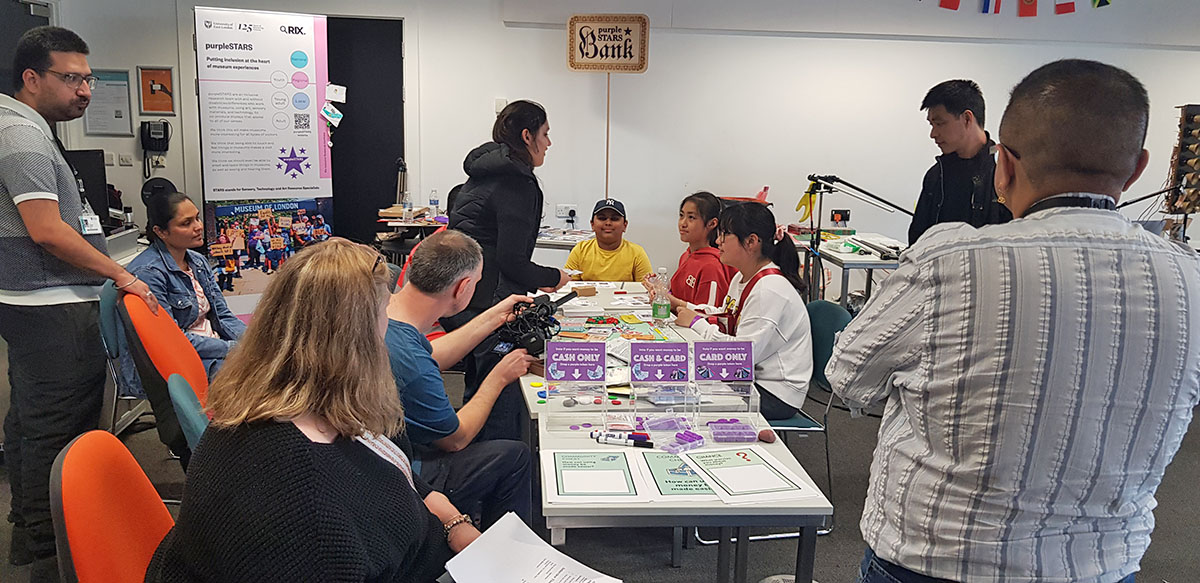

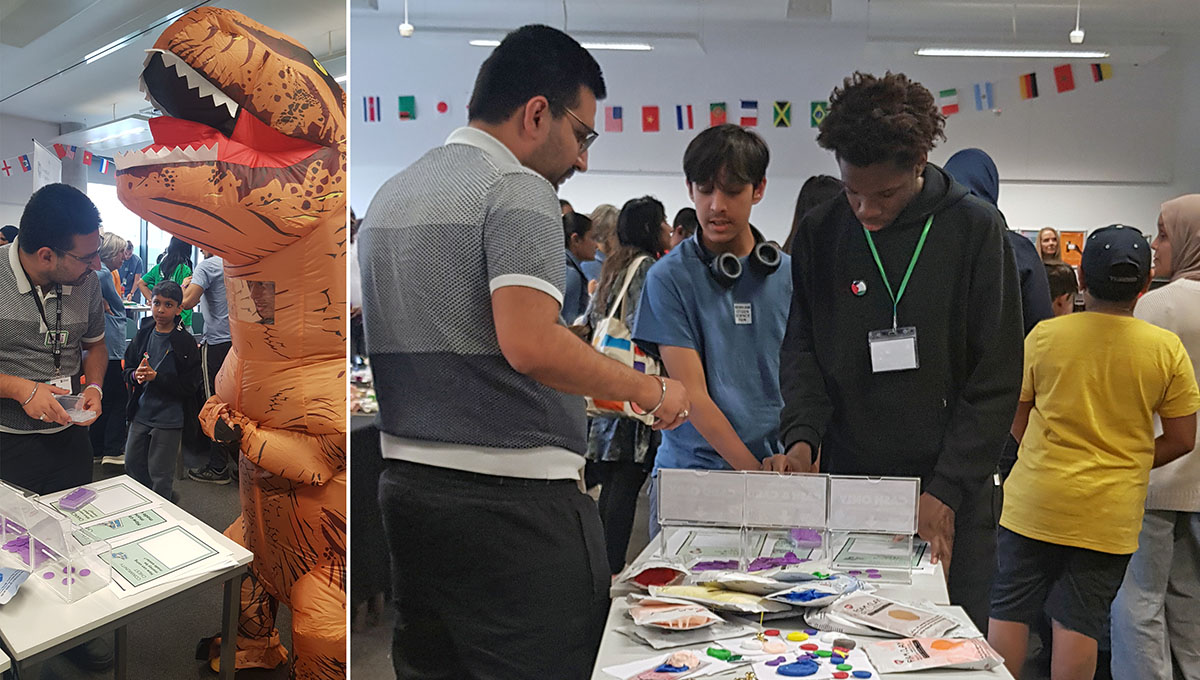
We can report that the people of Newham voted overwhelmingly to continue to keep using both cash and card, as per our Bank of Purple Stars pie chart below. The question we asked was Do you prefer to use cash, card, or keep both cash and card?
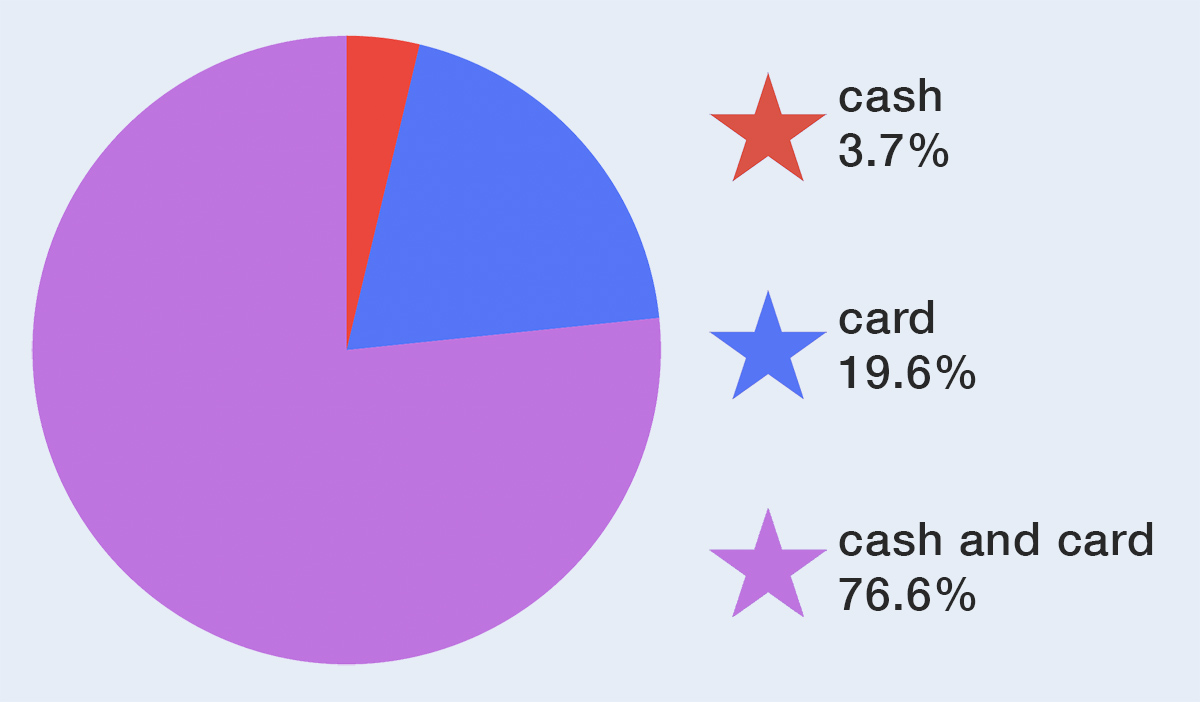
Once visitors had deposited their vote, we engaged them in conversation while creating their own money notes and using colourful foam clay. We took our inspiration from the first coins produced 2,700 years ago, when small lumps of weighed metal were stamped on one side. We followed this construction method, rolling the foam clay and pressing different stamps into them.
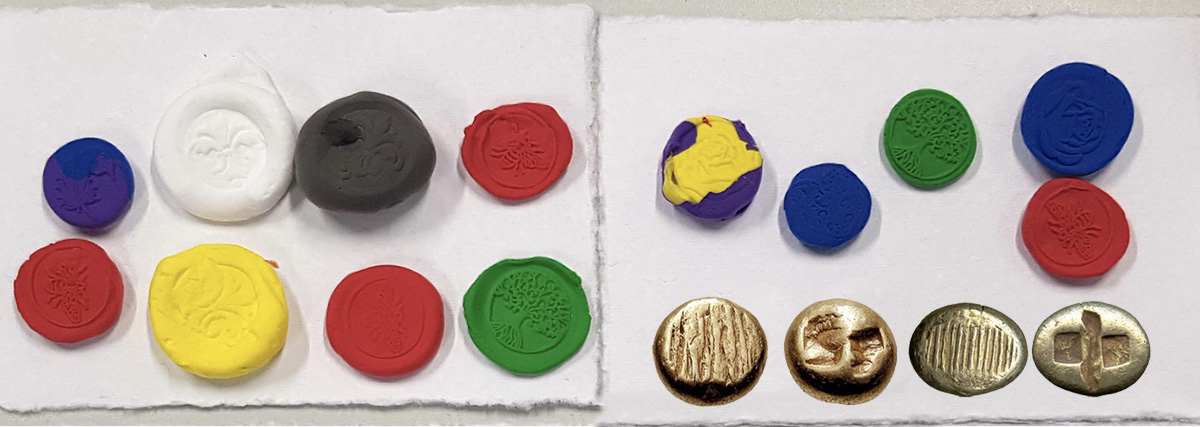
We invited visitors to compare digital Monopoly and classic Monopoly. Most people liked playing digital Monopoly, enjoying the sound effects, but some people missed the colourful bank notes and little houses of the classic Monopoly game.
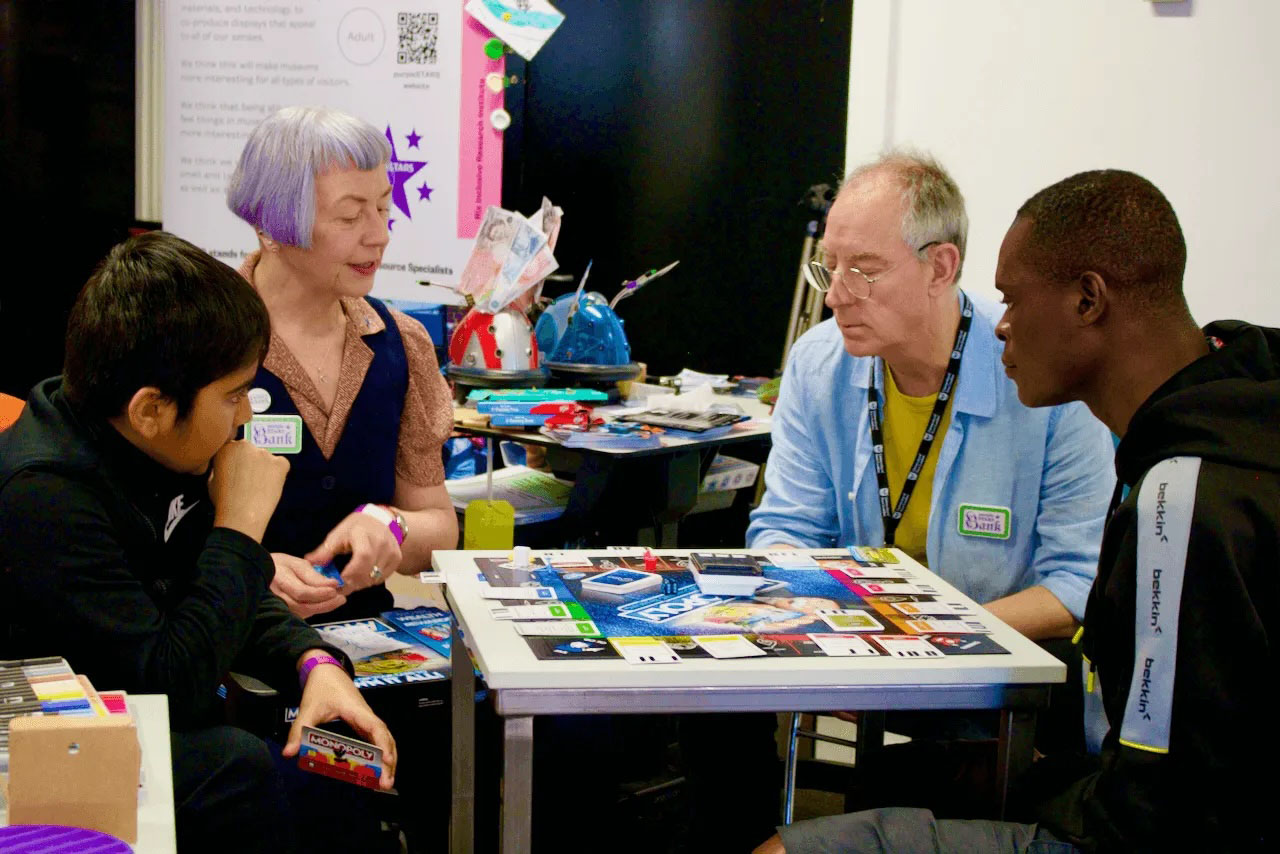
We also played Banking Bingo, designed by our volunteer from the Royal College of Art, Simran. This was a fun way to think about how we use money and to encourage people to share their experiences of money, both good and bad.
As part of our earlier research, we visited the Bank of England Museum’s The Future of Money exhibition to help us explore the question What is Money?
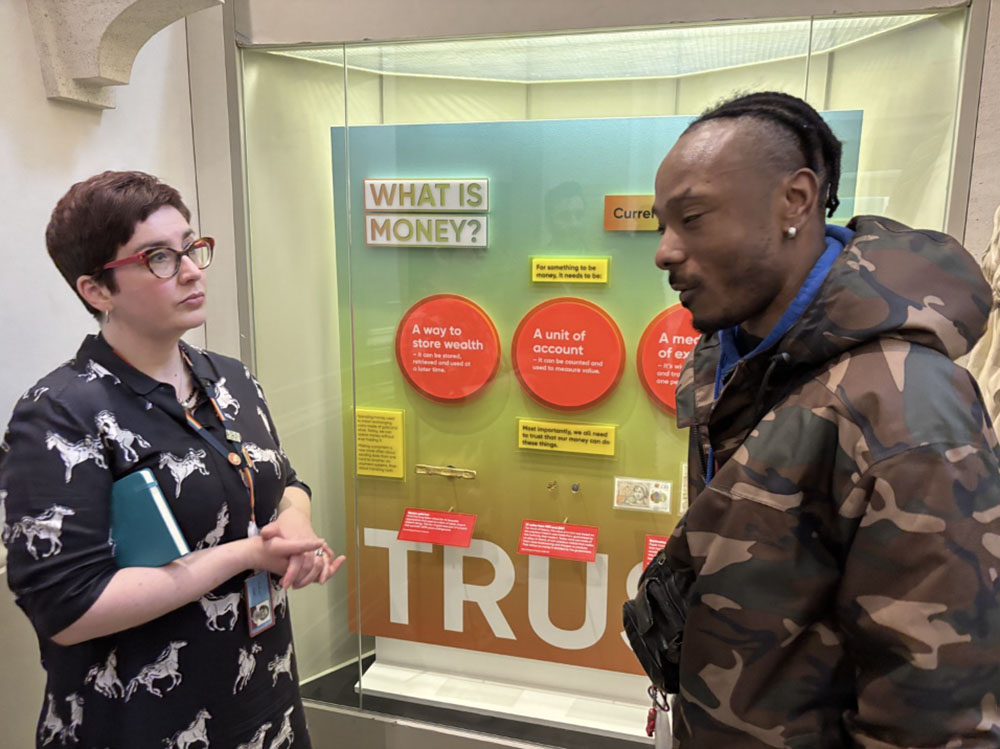
Below is the Bank of England Museum’s definition of what money is from The Future of Money:
- A way to store wealth – it can be stored, retrieved and used at a later time
- A unit of account – it can be counted and used to measure value
- A medium of exchange – it’s widely accepted and transferrable from one person to another
Money, we discovered, is a concept that works when, as a society, we trust its value and form.
We learnt that people in Newham love the ease of using online banking. You don’t have to worry about adding up or working out the change. For some people the experience of spending cash, for example handing over a £10 note, can have make it easier to recognise the amount being spent.
During our visit to the Bank of England Museum we learnt that In 2023, legislation was introduced in the UK to protect access to cash services. While this seemed positive for those wanting to keep using cash, and the Bank of England pledges it will keep producing cash and coins, people pointed out that many businesses and shops have stopped accepting cash as payment.
We asked how people felt about Bank buildings disappearing from the high streets and becoming online only. Some people would prefer to have a physical bank to visit as an option, especially when something goes wrong, and people need help with online banking or money worries.
At the Bank of Purple Stars we are exploring how abstract or intangible ideas can be made more understandable if the idea or concept becomes something physical/sensory. This aligns with the experience mentioned earlier where the awareness of spending money in cash or coins can, for some people, be more real than when spending money online.
We decided to add two RIX Interactive Robots to our purple STARS Bank vote, one Robot was a fan of Bank notes and the other a fan of Bank cards.
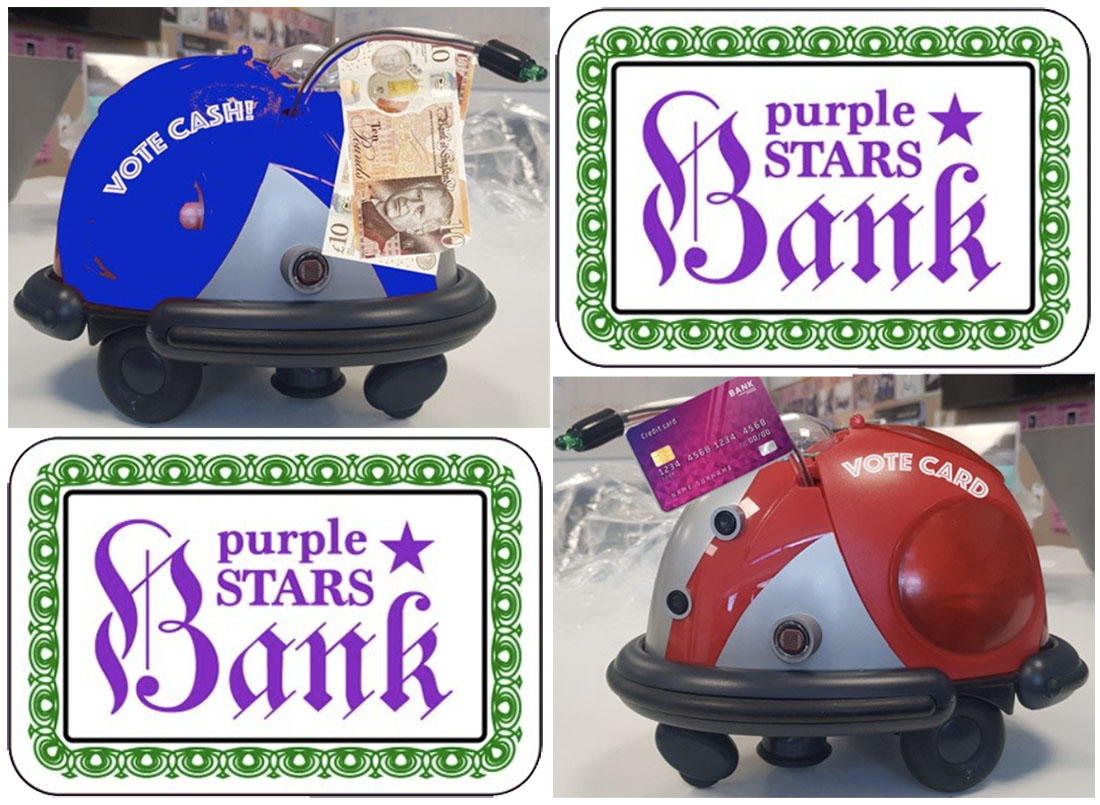
The Robots were programmed to roam around the Newham Science Fair drawing attention to our voting question Do you prefer cash or card or both?
Wiki showing a clip of the RIX Robots
Our research shows that some of us would like to keep banks as places on the high street where we can talk to a real person. During earlier sessions with co-researchers we had discussed how bank staff need to provide information in easy read and give people time to understand complicated information.
We have realised that shops and businesses probably need to be supported by the Government to continue accepting cash as well as cards, as cash may no longer be viable if there is nowhere to spend it.
We are communicating with policy makers, people with influence in money and banking, about how important it is to have the option to talk to a real person, who is familiar with using easy read for complex information, gives people time to understand, and shows them how to use online banking. We will also be sharing that the people of Newham voted to keep using both cash and cards for now and in the future.
Kanchan’s reflections
Our presence at the Newham Citizen Science Fair as the Bank of Purple Stars (BPS), offered a creative, enjoyable window into how Newham citizens relate to money in our increasingly digital world. By blending artistic expression with action research, we created a playful, open space for dialogue, where purple tokens, foam clay, badge making, roaming robots, banking bingo and Monopoly boards became tools for conversation and exploration.
We had one simple question to ask. Do you prefer cash, card, or both? The purple token voting quickly showed us that most people didn’t want to be forced into a single choice. The overwhelming sentiment was a desire for flexibility—to keep both cash and cards. For many, it wasn’t just about preference but necessity. Whether it was due to habit, budget control, trust, or access, cash remains important, even as digital methods become dominant. The overwhelming consensus was that residents did not want to rely solely on digital methods.
The creative note-making and clay coin-stamping activity sparked animated conversations as participants, both children and adults, shaped their own coins. These hands-on moments opened the door for people to share their thoughts, stories, and imaginings about money. One young visitor was particularly enthusiastic about the idea of embedding a chip in their finger to make payments. When I playfully asked, “But what if a criminal took your finger, what then?” they paused, thought carefully, and replied, “You’d have to do a retina scan as well.” It was a striking moment that reminded me that while there will always be those who try to exploit systems, there are also always new ways to reduce risk.
During my conversations especially with some of the younger visitors, those that expressed a preference for cash shared stories of a parent or relative who had experienced fraud or other difficulties with digital finance. Their views were shaped not just by their own thoughts, but also by other people’s negative experiences that they’d heard about. This highlighted to me that narratives around money and security are passed down and influence choices from an early age.
Visitors also had the chance to design and make their own badges, either for the BPS or for their own imagined currency. Some of the younger participants drew coins on paper and turned them into wearable take-home badges, proud, playful symbols of their engagement and imagination. These simple acts of ‘making’ gave visitors, especially the younger visitors, a sense of their voices as future citizens being valid.
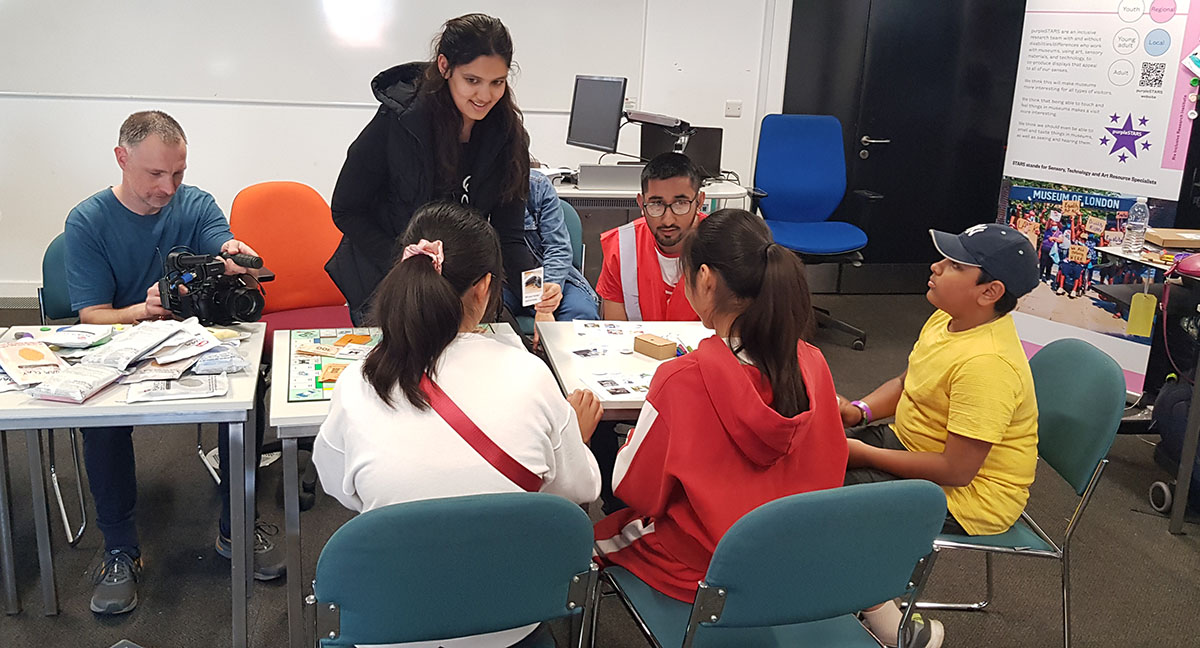
Whilst I observed visitors playing Digital Monopoly and Classic Monopoly, I saw that many enjoyed the digital version’s sound effects and fast pace, but many missed the tactile aspects of bank notes and tiny houses. That nostalgia echoed a broader truth that people still value the physical and the familiar in how they engage with cash.
As visitors played banking bingo, they began to share personal money-related stories, moments of joy, stress, confusion, and resilience. These candid conversations remind us that money isn’t just transactional, it’s deeply emotional and social.
What stayed with me most from the day is that people value choice, not just in how they make payments, but in how they are treated when things go wrong. While technology offers speed and convenience, it can’t replace the reassurance of speaking to a real person. When systems fail or questions arise, it’s human connection that people reach for.
In a borough as vibrant and diverse as Newham, it was uplifting to see how our playful, creative approach to Citizen Science sparked meaningful engagement across ages and backgrounds. The fair was a powerful reminder that science in the community doesn’t need to be sterile or serious—it can be hands-on, imaginative, and deeply human.
